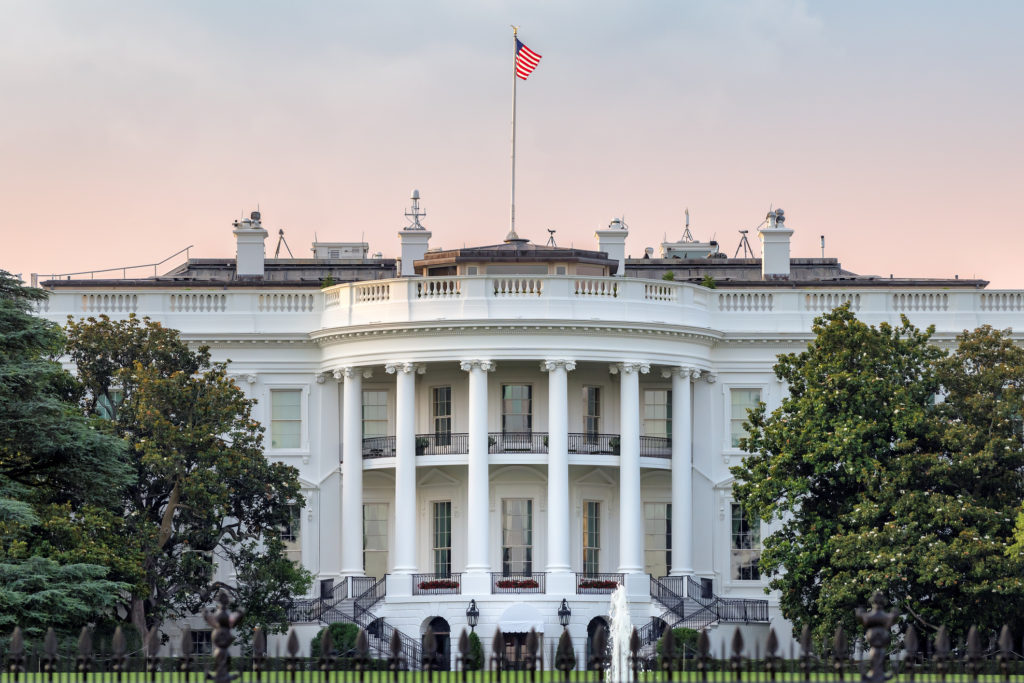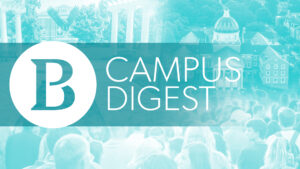
NASHVILLE (BP) – The Southern Baptist Ethics & Religious Liberty Commission has encouraged President Biden to include the input of evangelical Christian and other faith leaders in the federal government’s work on the use of artificial intelligence and other issues in technology ethics.
In a letter Tuesday (Nov. 9), Brent Leatherwood, the ERLC’s acting president, told Biden including leaders of faith communities on federal advisory bodies would help guarantee that religious liberty and freedom of expression are priorities in such issues as artificial intelligence (AI).
“[W]e urge you to include and consult with faith leaders, including an evangelical representative, on the various committees and boards formed as part of this crucial work,” Leatherwood wrote. “This would ensure that an important perspective is accounted for and represented in these monumental decisions before us as a nation and society.”
Leatherwood called for religious participation in the work of groups established since the National AI Initiative Act went into effect at the start of this year: The National AI Initiative Office and the National AI Advisory Committee. He also mentioned the White House Office of Science and Technology Policy (OSTP), as well as federal agencies such as the Department of Defense and Department of State.
The new law is designed to coordinate the federal government’s effort to speed up research into and application of AI for national security and economic flourishing. The National AI Initiative created by the law seeks to assure American leadership in the field, including “the development and use of trustworthy AI in the public and private sectors,” according to the initiative’s website.
Leatherwood also encouraged the participation of members of the faith community in the OSTP’s work on a digital bill of rights.
The ERLC has taken a leading role among religious bodies in addressing the ethical questions regarding AI and other technology issues.
The commission issued what Leatherwood described as “the first-ever, faith-based ethical statement” on AI in April 2019. “Artificial Intelligence: An Evangelical Statement of Principles” has been endorsed by more than 80 evangelical leaders, ethicists, pastors, technologists and public policy specialists, according to the letter.
When the statement was released, Jason Thacker, project leader for the document and now the ERLC’s chair of research in technology ethics, said AI “presents one of the greatest opportunities for human flourishing in our lifetime, but it also presents one of the greatest threats to human dignity that we’ll ever face.”
The statement said, “The church has a unique role in proclaiming human dignity for all and calling for the humane use of AI in all aspects of society.”
In September of this year, Thacker unveiled a new research project he is leading: The Digital Public Square. The effort is designed to produce resources to assist churches and leaders to “navigate this digital age with wisdom and to think through some of the most complex and crucial ethics challenges to our faith with wisdom and insight,” he told the ERLC’s trustees in their annual meeting.
The project will include four major elements in the next 18 months, Thacker said in September: (1) A “state of digital governance report” that will present a portrait of current and future technological issues; (2) an evangelical Christian statement of principles on “content moderation and digital governance;” (3) a church resource kit scheduled to be released in the summer of 2022; and (4) two books to be published next year – “Following Jesus in the Digital Age” and “The Digital Public Square: Ethics and Religion in a Technological Society.” Thacker is writing the former for Broadman & Holman Publishing and editing the latter for B&H Academic.
The growing use of AI in recent years has been demonstrated in such products as Apple’s Siri and Amazon’s Alexa, as well as in driverless cars. It also has been applied in such fields as business, finance, health care and the military.
Technology has been used for nefarious purposes, however, notably by the Chinese Community Party (CCP) in its surveillance and repression of the Uyghur people, a primarily Muslim group in northwest China. The U.S. government, as well as Southern Baptist messengers at the convention’s June meeting, have declared the CCP’s treatment of the Uyghurs as genocide.














